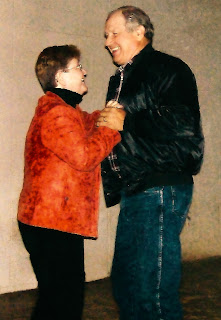 |
Source: www.kochivibe.com Artist Unknown |
To enjoy this wonderful song: gaze to the right and click "play". Read the lyrics.
For years, this catchy song has held pride of place in my Christmas Playlist. Always in the top three of songs to play, it speaks of ancient traditions in ways fresh and new. I like that.
I also like to celebrate Christmas by tipping my hat to the faith and traditions that Jesus would have been celebrating this time of year. Jesus would have been remembering how, thanks to God, one day's worth of lamp oil kept the temple alight for eight days. Striking, isn't it, how easily the lyrics of this song relate to Christmas? God lifting us out of darkness. Light and peace coming to a world that often finds itself in darkness and anxiety. Freedom from slavery, from sin. Taking darkness and casting joy. God exceeding our plans and expectations.
These lyrics strike me in a different way each year. This year, I'm questioning the temptation to let Christmas be December 25. Come the 26th, it is too easy to let "normal" life resume. Night after night, one by one, the candles are set alight. Maybe joy and light are like that. Maybe light, freedom, and peace require more than frenzied weeks of preparation for one night and day. (After all, it is the twelve days of christmas, isn't it?)
I don't know about you, but I feel called to continue enjoying the lights of Christmas. I'm perfectly willing to let the jingle bells, TV shows, and the noise of Christmas pass. After one day, I've had my fill. But, let the lights linger. Nature supplies dark evenings that allow me to reflect on an ornamented tree that is a sign of God's activity in the world, bringing light to darkness. There is an invitation in our very orbit about the sun to turn off our overhead electric lightbulb suns, let nature's darkness be, and let the natural light of candles cast their light.
God is at work in the darkness around us. God turns the fear and darkness in our lives into mystery, and -with time- illumination and joy. Reflecting on such things takes more than a day. It takes repition.
Twelve days of Christmas? Then it isn't even half over!
I hope you have only begun to see the light!






